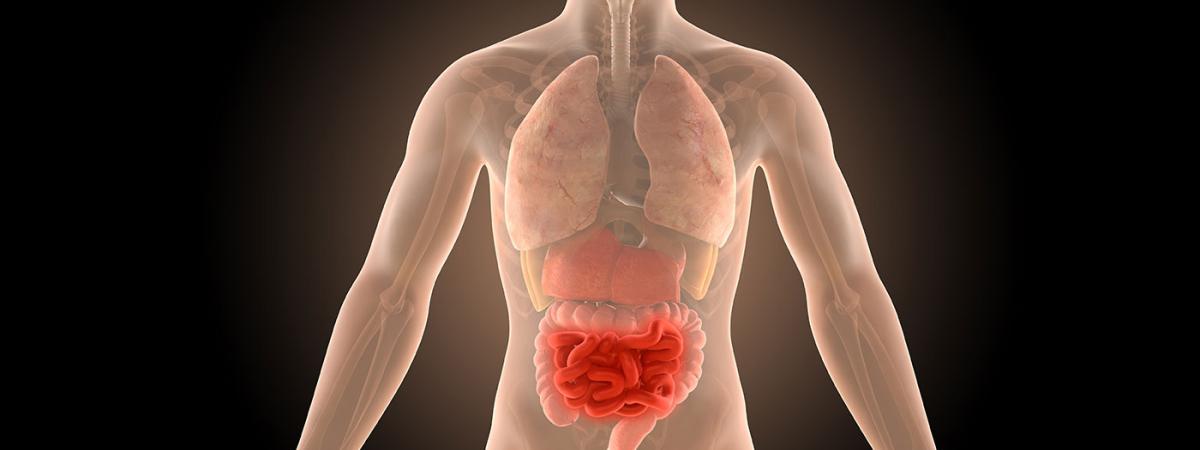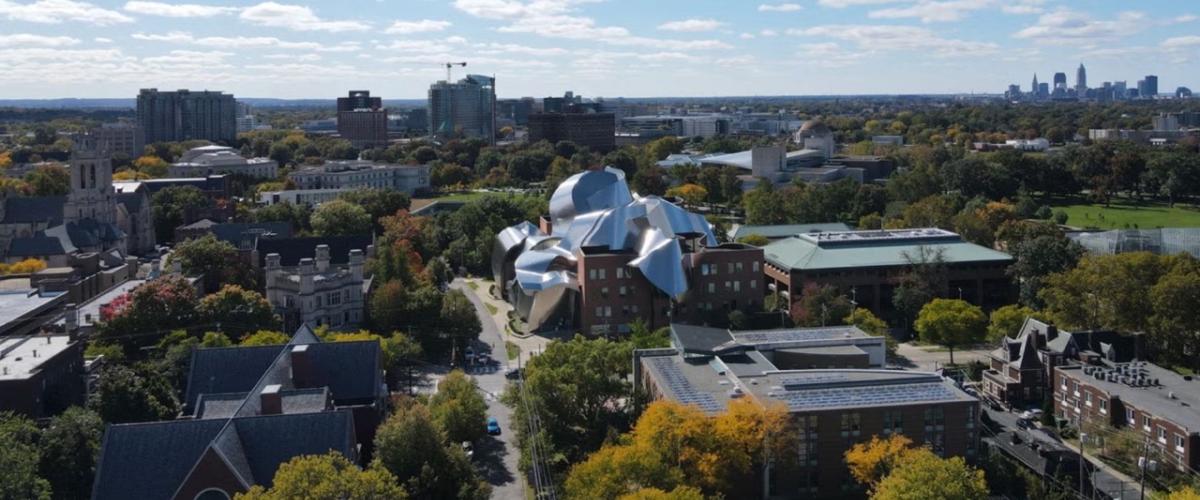Goal: Investigate the role of intestinal innate immunity in Crohn’s disease
Fabio Cominelli, a professor in the departments of Medicine and Pathology at Case Western Reserve University School of Medicine and director of the school’s Digestive Health Research Institute, has received a $9.7 million, five-year renewal program project grant from the National Institute of Diabetes and Digestive and Kidney Diseases of the National Institute of Health, with the goal of better understanding the origins of Crohn's disease and eventually developing a cure. The exact cause(s) of the disorder are unknown, making a cure elusive. In the past, diet and excess stress were leading candidates, but today’s consensus is that while these may make Crohn's disease worse, they don't precipitate it. Instead, a combination of genetics and a faulty immune system probably are involved. Among the objectives is to discover why certain mice—specifically those who experience spontaneous gut inflammation—appear to have an innate immunity defect that predispose them to develop Crohn’s disease. The aim is to replicate these findings in humans, leading to a cure for at least some patients with this devastating ailment. Symptoms of Crohn’s disease include severe abdominal pain and cramps, weight loss, recurrent diarrhea, loss of appetite, and fatigue. About 780,000 Americans have Crohn's disease. Specifically, growing evidence, including work done by Cominelli and his colleagues, suggests that Crohn's disease may be caused by a poorly regulated innate immune response against unknown antigens in a genetically susceptible person. (Antigens are foreign substances in the body that produce an immune response). Fabio Cominelli
“Before and during the first five-year project, my colleagues and I provided evidence of the importance of innate immunity and the role of what’s called the NOD2 gene,” Cominelli said. “This gene supplies instructions for making a protein that helps protect the body against foreign invaders in a disease called ileitis.”
Ileitis is an inflammation of the lower part of the small intestine, known as the ileum. Crohn’s disease is inflammation of both the small and large intestines. Understanding how the body may guard itself against ileitis is an important step in understanding how it may guard itself against Crohn’s disease.
The Cominelli team earlier found that a deficit in the body’s natural immune system may play an important role in causing the disease. The immune system includes numerous infection-fighting cells including those regulated by the NOD2 gene. In studying ileitis in mice, Cominelli and his colleagues found a shortage of these cells and, as a result, harmful antigens weren’t being removed from the body. Based on this finding, a cure for Crohn’s disease could include developing an alternative source of these cells to boost the body’s immune system.
The overall renewal project, which is multidisciplinary in nature, will continue to be directed by Cominelli. It comprises three component projects: he will head the first; Derek Abbott, associate professor of pathology and medicine, will direct the second; and Theresa Pizarro, professor of pathology and medicine, will lead the third. They will be supported by a team of colleagues, including Alex Rodriguez-Palacios, assistant professor of medicine.
All three projects will expand the study of molecules such as the NOD2 gene, as well as the closely related NOD1, IL-1, and IL-33 genes, and their relationship with the gut microbiome (the bacteria that populate our intestines). IL-1 and IL-33, or Interleukin-1 and -33, are proteins that promotes the production of immune cells to fight infections.
“We are extremely grateful to the National Institute of Diabetes and Digestive and Kidney Diseases for their continued confidence in us,” said Cominelli. “My colleagues and I are committed to translating our research into new medications and treatments that will rectify the gaps in the immune systems of patients with Crohn’s disease, ultimately resulting in a cure.”
Research reported in this publication was supported by the National Institute Of Diabetes And Digestive And Kidney Diseases of the National Institutes of Health under Award Number P30DK097948. The content is solely the responsibility of the authors and does not necessarily represent the official views of the National Institutes of Health.
Fabio Cominelli
“Before and during the first five-year project, my colleagues and I provided evidence of the importance of innate immunity and the role of what’s called the NOD2 gene,” Cominelli said. “This gene supplies instructions for making a protein that helps protect the body against foreign invaders in a disease called ileitis.”
Ileitis is an inflammation of the lower part of the small intestine, known as the ileum. Crohn’s disease is inflammation of both the small and large intestines. Understanding how the body may guard itself against ileitis is an important step in understanding how it may guard itself against Crohn’s disease.
The Cominelli team earlier found that a deficit in the body’s natural immune system may play an important role in causing the disease. The immune system includes numerous infection-fighting cells including those regulated by the NOD2 gene. In studying ileitis in mice, Cominelli and his colleagues found a shortage of these cells and, as a result, harmful antigens weren’t being removed from the body. Based on this finding, a cure for Crohn’s disease could include developing an alternative source of these cells to boost the body’s immune system.
The overall renewal project, which is multidisciplinary in nature, will continue to be directed by Cominelli. It comprises three component projects: he will head the first; Derek Abbott, associate professor of pathology and medicine, will direct the second; and Theresa Pizarro, professor of pathology and medicine, will lead the third. They will be supported by a team of colleagues, including Alex Rodriguez-Palacios, assistant professor of medicine.
All three projects will expand the study of molecules such as the NOD2 gene, as well as the closely related NOD1, IL-1, and IL-33 genes, and their relationship with the gut microbiome (the bacteria that populate our intestines). IL-1 and IL-33, or Interleukin-1 and -33, are proteins that promotes the production of immune cells to fight infections.
“We are extremely grateful to the National Institute of Diabetes and Digestive and Kidney Diseases for their continued confidence in us,” said Cominelli. “My colleagues and I are committed to translating our research into new medications and treatments that will rectify the gaps in the immune systems of patients with Crohn’s disease, ultimately resulting in a cure.”
Research reported in this publication was supported by the National Institute Of Diabetes And Digestive And Kidney Diseases of the National Institutes of Health under Award Number P30DK097948. The content is solely the responsibility of the authors and does not necessarily represent the official views of the National Institutes of Health.




